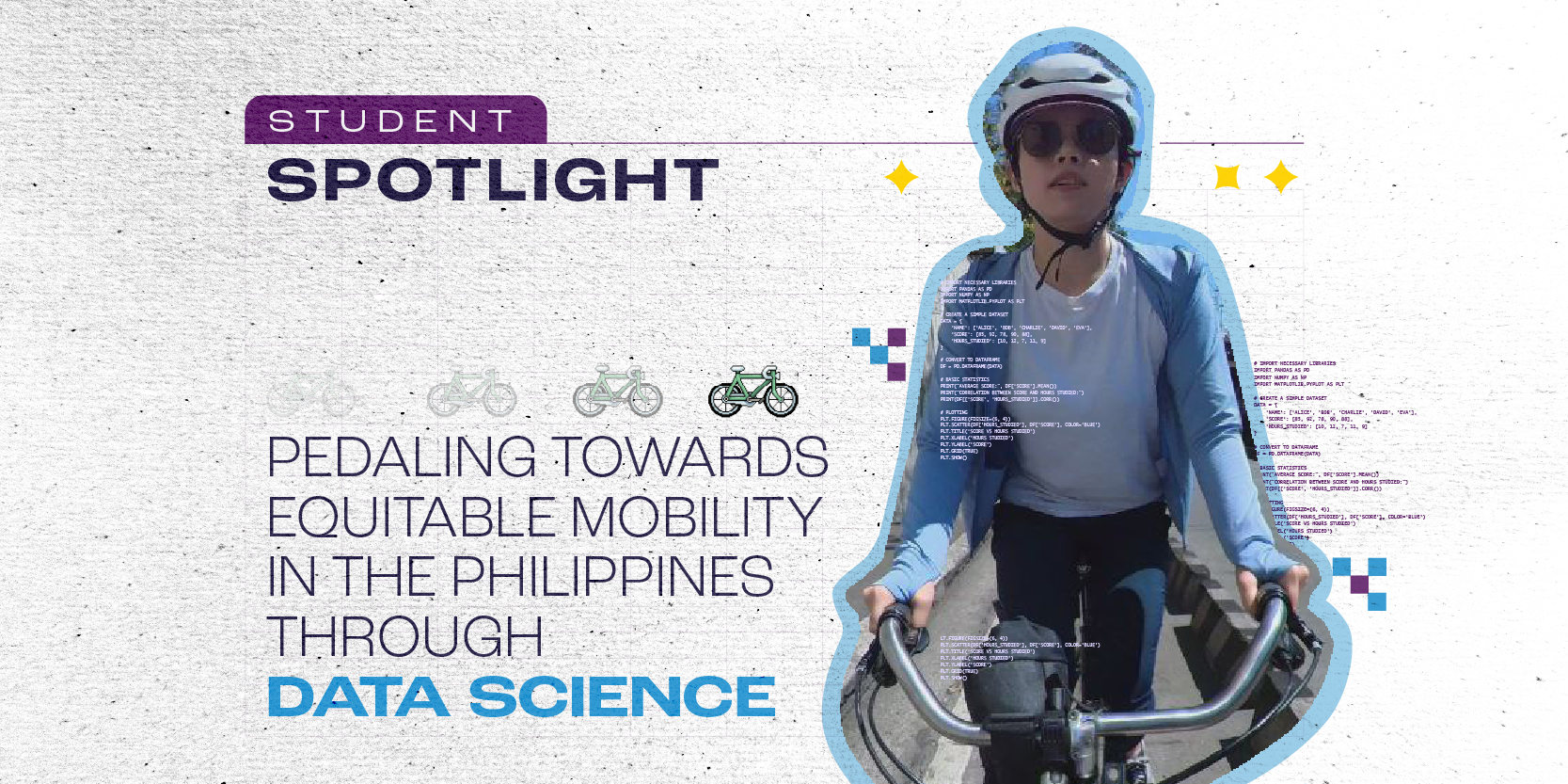Pedaling Towards Equitable Mobility in the Philippines Through Data Science
Every day, while Metro Manila commuters are stuck in traffic, Rochelle “Rowhe” Siy cycles to her data science classes at the Asian Institute of Management (AIM). As a Master of Science in Data Science (MSDS) student, Rowhe isn’t just pursuing academic excellence; she’s using her degree to advance her advocacy for active mobility in the Philippines.
From Personal Commute to Public Mission
Rowhe began using active mobility in 2019, but the decision had been building for years. “I can tell you the exact month that I changed my mind,” she said, describing December 2018 when traffic in Manila hit a breaking point. “The traffic was so bad, and I couldn’t book an Uber or a Grab.. I just couldn’t book anything for three hours.” Her husband, who had started cycling before her, also tired of picking her up in the car and being stuck in traffic for hours, bought her an electric kick scooter.
The transformation was immediate: “Before using the scooter, it would take me two hours to get to work, anywhere between two to four hours to get back home. So, that’s six hours of my day. When I started using the scooter, I could get to work in 30 minutes, and I could get home in 30 minutes. And suddenly, I had so much time.”
What started as a practical solution to Manila’s notorious traffic crisis evolved into a larger mission: to advocate for sustainable transportation in Metro Manila and beyond.
By cycling by choice, Rowhe disrupts entrenched perceptions that biking is a last resort. Her daily commute becomes both a personal statement and a form of public engagement.
Applying Data Science to Advocacy
Through what she’s learning in her MSDS degree at AIM, Rowhe is transforming her advocacy into a data-driven movement. “I think we really need more localized studies. We have some data, but we don’t have a lot of people who know what to do with data. I want to kind of bridge that.”
She wants to pull from MMDA’s tweets, extract geographic data, and map crash hotspots in Metro Manila. “That’s already an application of things I’ve learned,” she explains. “I know exactly how to do it now.” She overlays crash data with Google Street View to visually assess where infrastructure improvements are needed.
In her network science course, a professor showed them a simulation that demonstrated the possibility of modeling and visualizing changes to create solutions. “If we can build models that show if you do this, this is what it’s going to look like for the traffic around. That could be an eye-opener to people who are still on the fence about moving away from cars.”
Using Data Science at Work
“I’d been interested in getting a master’s in data science for several years – ever since I heard about the Behavioral Insights Team/nudge unit in the UK. I thought it was fascinating how they used data to inform policymaking or policy enforcement methods.”
“ I chose AIM because AIM made sure their data science students also learned about business,” she said, which allows her to immediately apply what she learns to her day job in marketing. For Rowhe, data science allows for sharper, more efficient decisions. “We can process the data so we can refine our messaging. We can see what’s working and what isn’t. We can be more granular with that. So that means we’re more efficient—with the way that we spend our money, with the campaigns that we run.”
Whether at work or on the street, Rowhe is able to bring a data-informed mindset to everything she does.
Community Work and Visibility
Outside of work and school, Rowhe is a content creator with 17.4k followers on Instagram. She shows what it’s like to be a professional who commutes by bike, and through this, she aims to change public perception. “I want to change the perception of what a bike commuter looks like. I want to get people to experience bike commuting because it’s convenient and it helps with mental health and it’s just fun.”
A Vision for Data-Driven Change
For Rowhe, the long-term goal is to close the research gap in Philippine transportation and help build evidence-based policies. “There are a lot of studies about transportation economics and planning that exist, but very few are from the Philippines,” she said. “One of my main motivators for finishing this degree is so I can help with research to help the advocacy. I’m looking forward to using what I learn in the program for research that can be used to lobby for better, more equitable mobility policies.”
By living the challenges of Metro Manila’s transport system, while simultaneously building the tools to fix them, Rowhe embodies what it means to be a data-informed advocate. Her work is not just technical—it’s deeply personal, practical, and public.
Through direct application of her studies, community visibility, and her role in both advocacy and industry, Rowhe is working to create a more inclusive, equitable, and sustainable transportation future in the Philippines.
Ready to turn your passion into impact?
The Master of Science in Data Science program at the Asian Institute of Management is designed for professionals who want to use data not just for business, but for building solutions that matter. Learn how you can harness the power of data for innovation, policy, and purpose—explore the program today.


